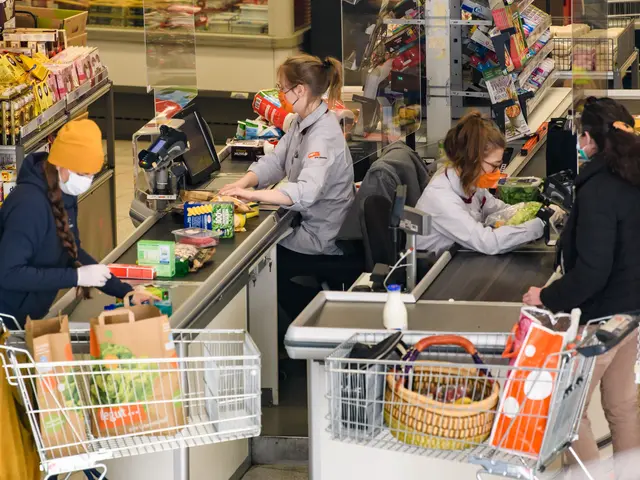In the fight against the new coronavirus, several countries in Europe have made the wearing of protective face masks mandatory, but German politicians as well as the public are still deeply divided about the issue.
"I currently do not see mandatory mask-wearing for all of Germany," Armin Laschet told public broadcaster ZDF on Wednesday. Instead of a nationwide rule, the minister president of North Rhine-Westphalia, Germany's most populous state, supports individual solutions that are "tailored to the different grades of infection."
In Bavaria, where both infection numbers and coronavirus-related deaths are the highest among all German states, the local government may once again prove more decisive than other states or the federal government in Berlin.
It is "highly likely" that face masks would become mandatory in public places, said Bavaria's Minister President Markus Soeder on Tuesday. "Of course, there will be some form of mask obligation in the end."
The German public seems to be just as divided about the obligation to wear face masks as the country's politicians. This week, a YouGov survey found that 44 percent of Germans were happy with the current coronavirus-related restrictions, while almost as many, 41 percent, wanted government measures to become tougher.
As a border region connecting to Italy and Austria, Bavaria was the first German state to impose a limited curfew and further restrictions to public life in order to slow down the spread of the new coronavirus. Two days later, Chancellor Angela Merkel announced nationwide restrictions for all of Germany.
After the Czech Republic, Slovakia and most recently Austria announced the requirement that people must cover their mouths and noses in supermarkets, Germany's states are putting pressure on the federal government to introduce similar rules.
Already, some German cities, such as Jena, have started to require their citizens to wear face mask in shops and on public transport. Because of supply shortages of face masks, however, many local authorities are encouraging people to sew their own masks or to wear at least a protective cloth.
"The whole world is buying protective masks right now," said German Health Minister Jens Spahn.
Local media has reported about face masks destined for Germany that ended up being diverted elsewhere. "Sometimes even deliveries that were thought to be safe do not arrive as planned," said Spahn.
Even if the federal government found enough support among the German public to make wearing face masks mandatory, the supply problem would not cease to exist. Germany's municipalities estimated that a total of 115 million simple protective masks and 60 million hospital gowns would be needed in clinics and medical practices over the next six months.
Any decision about mandatory face masks across Germany will ultimately depend on the development of infection numbers and deaths.
For now, the rate of new infections has seen a "positive trend," said Lothar Wieler, president of Germany's Robert Koch Institute (RKI), on Wednesday. However, the all-clear could not yet be given.
 简体中文
简体中文





